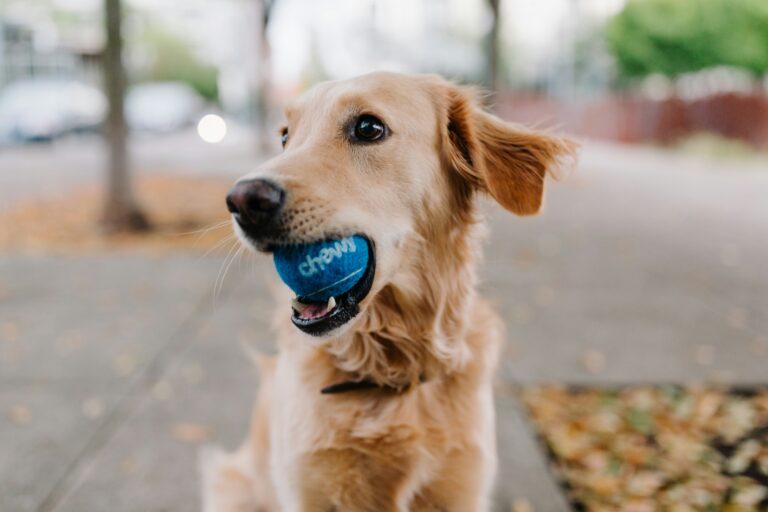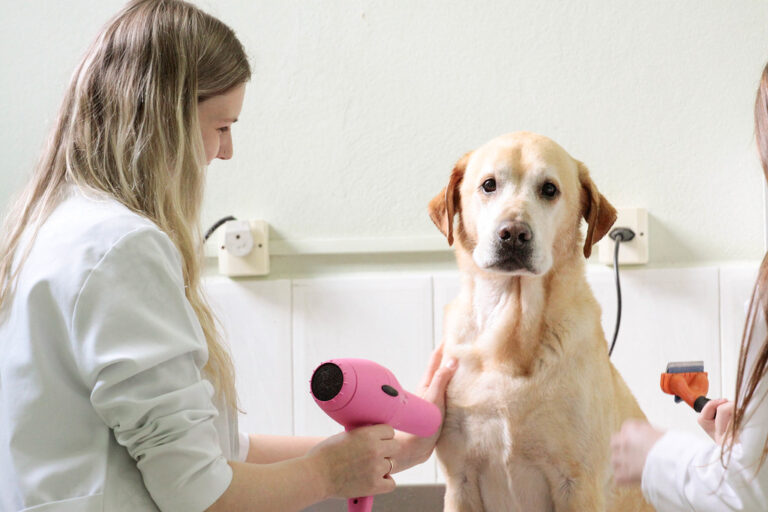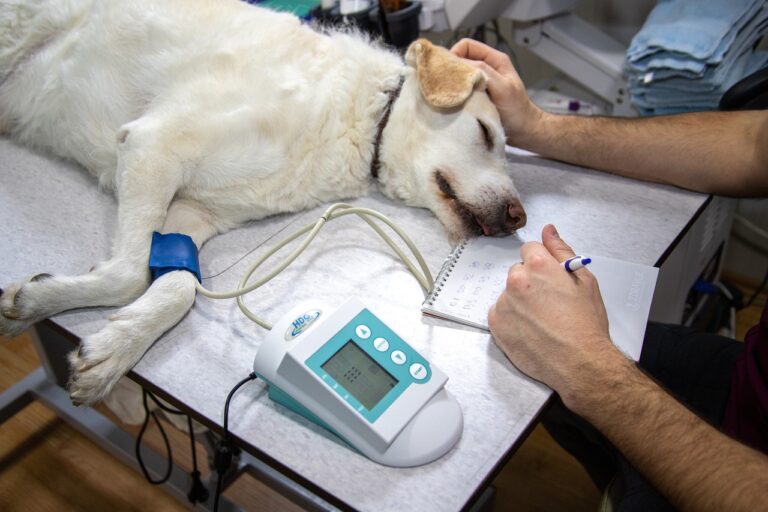Unleashing the Best Senior Labrador Retriever Care: A Path to Joyful Aging
Caring for Senior Labrador Retrievers
As your Labrador Retriever enters their senior years, it’s important to provide them with the appropriate care to ensure a joyful and comfortable aging process. Understanding the specific needs of senior Labrador Retrievers is crucial for maintaining their overall well-being and quality of life. In this section, we will explore the key aspects of senior Labrador Retriever care, including regular veterinary check-ups and the importance of exercise and mental stimulation.
Understanding Senior Labrador Retriever Care
Senior Labrador Retrievers have unique care requirements compared to younger dogs. Just like humans, they experience physical and cognitive changes as they age. It’s important to be aware of these changes and adapt their care accordingly. Some common signs of aging in Labrador Retrievers include decreased energy levels, joint stiffness, weight gain, and potential cognitive decline (AKC).
By understanding the specific needs of senior Labrador Retrievers, you can provide them with the care they require to age gracefully and enjoy their golden years to the fullest. This includes adjustments in their diet, exercise routines, and living environment.
Importance of Regular Veterinary Check-ups
Regular veterinary check-ups play a critical role in the health and well-being of senior Labrador Retrievers. As dogs age, they become more susceptible to various health issues. These check-ups allow veterinarians to monitor your senior Labrador Retriever’s overall health, detect any potential problems early on, and provide appropriate treatments or interventions.
During these check-ups, your veterinarian may conduct a thorough physical examination, assess weight and body condition, check for signs of joint problems or arthritis, and evaluate cognitive function. They may also recommend additional diagnostic tests, such as bloodwork or X-rays, to gain a comprehensive understanding of your Labrador Retriever’s health status (Zumalka). By staying proactive and consistent with these check-ups, you can address any health concerns promptly and ensure your senior Labrador Retriever receives the necessary care.
Exercise and Mental Stimulation for Senior Labs
Maintaining an appropriate exercise routine and providing mental stimulation are vital for the well-being of senior Labrador Retrievers. While their energy levels may decrease as they age, regular exercise remains important for keeping them physically fit, maintaining a healthy weight, and promoting joint mobility. However, exercise routines for senior Labrador Retrievers should be modified to accommodate their aging bodies and potential health issues (Zumalka).
Low-impact activities such as short walks or swimming can be beneficial for senior Labrador Retrievers, as they help maintain joint health without placing excessive stress on their aging bodies. Mental stimulation is equally important and can be achieved through interactive toys, puzzle games, and training exercises. These activities engage their minds and help prevent cognitive decline (AKC).
Consulting with a veterinarian to create a suitable exercise plan for your senior Labrador Retriever is essential. They can provide guidance on the appropriate types and durations of exercise based on your dog’s individual needs and health condition. Remember to always monitor your Labrador Retriever during exercise and adjust the intensity or duration as needed. Regular exercise and mental stimulation will contribute to their overall well-being and help them age gracefully.
By understanding the specific care requirements of senior Labrador Retrievers, ensuring regular veterinary check-ups, and providing appropriate exercise and mental stimulation, you can provide your beloved companion with the best care during their golden years. With your love and attention, your senior Labrador Retriever can continue to experience a joyful and fulfilling life.
Nutrition for Senior Labrador Retrievers
As Labrador Retrievers age, their nutritional needs change, requiring specific attention to ensure their overall health and well-being. Proper nutrition plays a vital role in supporting their senior years, addressing specific concerns such as weight management, joint health, and mobility. In this section, we will explore key considerations for senior Labrador Retriever nutrition.
Adjusting Caloric Intake for Seniors
Senior Labrador Retrievers may require a reduced calorie intake to manage potential weight gain as they become less active in their older age. It’s important to consult with a veterinarian to determine the appropriate amount of food for your senior Labrador Retriever. They will take into account factors such as your dog’s weight, activity level, and overall health. Adjusting the caloric intake helps prevent obesity, which can lead to various health issues. For more information on the importance of regular health check-ups for Labradors, refer to our article on the importance of regular health check-ups for Labradors.
Specialized Diets for Senior Labs
To meet the unique nutritional needs of senior Labrador Retrievers, specialized diets formulated for senior dogs are available. These diets take into account the specific requirements of aging dogs, including joint health, digestion, and overall vitality. Omega-3 fatty acids and glucosamine are commonly included in these diets to support joint health and mobility, addressing common issues in aging Labradors. Incorporating these nutrients can help alleviate joint pain and improve overall mobility. For more information on joint health and senior Labradors, visit our article on labrador retriever health issues and care.
Addressing Joint Health and Mobility
Senior Labrador Retrievers are prone to joint problems, including arthritis, which can affect their mobility and quality of life. To support their joint health, it’s essential to provide appropriate nutrition. Specialized foods with additives like glucosamine and chondroitin can be beneficial for joint health in senior dogs. These ingredients help maintain the integrity of the joints, reduce inflammation, and support overall joint function. Your veterinarian can recommend specific diets or supplements that are suitable for your senior Labrador Retriever’s unique needs. For more detailed information on nutrition for senior Labradors, refer to our article on best diet and nutrition for labrador health.
By adjusting the caloric intake, providing specialized diets, and addressing joint health and mobility concerns, you can ensure that your senior Labrador Retriever receives the optimal nutrition they need to thrive in their golden years. Remember to consult with your veterinarian to develop a tailored nutrition plan that meets the specific needs of your senior Labrador Retriever.
Common Health Issues in Senior Labs
As Labrador Retrievers age, they may be susceptible to certain health issues that are more common in senior dogs. It’s important to be aware of these conditions and take proactive measures to ensure the well-being of your senior Labrador Retriever. Here are some of the common health issues to watch out for:
Obesity and Weight Management
Obesity is a prevalent issue in senior Labrador Retrievers, with an estimated 54% of dogs in the United States being considered overweight (Zumalka). Maintaining a healthy body weight is crucial for their overall health and quality of life. Obesity can lead to various health problems, including joint stress, heart disease, and diabetes.
To prevent obesity in senior Labs, it’s important to manage their weight through proper diet and regular exercise. Consult with a veterinarian or a pet nutritionist to determine the appropriate calorie intake for your senior Lab. Adjusting their diet to meet their specific nutritional needs and avoiding excessive treats or high-calorie foods can help manage weight gain (vcahospitals). Regular exercise is also essential to keep them active and maintain a healthy weight. Engage in low-impact activities that are suitable for their age and physical condition. For more information on exercise routines for senior Labs, refer to our article on Senior Labrador Retriever Exercise Routines.
Joint Problems and Arthritis
As Labrador Retrievers age, they may develop joint problems, including arthritis. Joint issues can cause pain, discomfort, and reduced mobility. It’s important to address these issues to ensure your senior Lab maintains a good quality of life.
There are various ways to manage joint problems and arthritis in senior Labs. Providing a comfortable and supportive bed can help alleviate pressure on their joints. Regular exercise, tailored to their needs, can help maintain muscle strength and joint flexibility. Low-impact activities such as swimming or gentle walks can be beneficial. Additionally, joint supplements or medications prescribed by a veterinarian can help reduce inflammation and manage pain. Consult with your veterinarian for specific recommendations based on your Lab’s individual needs.
Cognitive Dysfunction Syndrome (CDS)
Cognitive Dysfunction Syndrome (CDS), also known as canine dementia, is a condition that affects older dogs, including senior Labrador Retrievers. CDS can lead to a decline in cognitive function, memory loss, disorientation, and changes in behavior. It’s important to monitor your senior Lab for signs of CDS and provide appropriate care.
There are several strategies to support dogs with CDS. Maintaining a consistent routine and environment can help reduce confusion and anxiety. Providing mental stimulation through interactive toys, puzzles, and training exercises can help keep their minds active. Your veterinarian may also recommend medication or supplements that can support cognitive function and manage the symptoms of CDS. Regular veterinary check-ups are essential for early detection and proper management of this condition.
By being aware of these common health issues in senior Labs and taking proactive measures, you can help ensure a happy and healthy life for your beloved companion. Regular veterinary check-ups, a balanced diet, weight management, joint care, and cognitive support are all important aspects of senior Labrador Retriever care.
Creating a Senior-Friendly Environment
As your Labrador Retriever ages, it’s important to create a senior-friendly environment that accommodates their changing needs. This includes making adjustments to ensure their physical comfort, providing suitable sleep options, and ensuring their safety by preventing hazards in their surroundings.
Accommodating Physical Limitations
Senior Labrador Retrievers may experience reduced strength in their bones and muscles, which can affect their mobility. To help them navigate their environment safely, consider making modifications such as providing pet stairs or ramps to assist them in reaching elevated surfaces. This can prevent injuries and make it easier for them to move around, especially if they have difficulty climbing stairs (Dog Mom Days).
Additionally, be mindful of potential hazards that may pose risks to your senior Lab. Ensure that their living area is free from clutter, loose wires, or other objects that could cause tripping or accidents. Regularly inspect the surroundings and remove any potential hazards to create a safe and comfortable environment for your aging Labrador.
Providing Comfortable Sleep Options
Just like humans, senior Labrador Retrievers require quality sleep for their overall well-being. Offering comfortable sleeping options, such as soft cushioned beds tailored to their needs, is crucial for their comfort and joint support. A cozy and supportive bed can help alleviate any pain or discomfort they may experience due to age-related conditions like arthritis or joint stiffness (Dog Mom Days).
Consider investing in orthopedic or memory foam beds specifically designed for senior dogs. These beds provide extra support to their joints and alleviate pressure points, promoting better rest and improving their overall quality of life. Providing a warm and quiet sleeping area away from drafts or noise disturbances can also contribute to their comfort.
Ensuring Safety and Preventing Hazards
When it comes to creating a senior-friendly environment, it’s crucial to be aware of potential hazards that could impact your Labrador’s well-being. As they age, their mobility and sensory perception may change, making them more susceptible to accidents or injuries.
Regularly assess your home for potential hazards and take steps to minimize risks. Secure loose wires, remove toxic plants from their reach, and ensure that cleaning supplies or medications are stored safely out of their reach. Additionally, consider using baby gates to restrict access to certain areas of the house, especially those with stairs or other potential dangers.
By taking these precautions and creating a safe environment, you can provide your senior Labrador Retriever with a comfortable and secure living space that supports their aging needs.
As you continue to care for your senior Lab, remember to prioritize their well-being by providing a loving and supportive environment. Regular veterinary check-ups, appropriate nutrition, and mental stimulation also play vital roles in ensuring their health and happiness. For more information on senior Labrador Retriever care, check out our other articles on labrador retriever health issues and care and best diet and nutrition for labrador health.
Choosing the Right Dog Breed for Seniors
If you’re a senior considering adding a furry friend to your life, it’s important to choose a dog breed that is compatible with your unique needs and preferences. Several factors should be taken into consideration when selecting a dog breed for seniors, including size, energy levels, grooming needs, trainability, and special health considerations. Understanding these factors will help you find the perfect canine companion for graceful aging together.
Factors to Consider
When choosing a dog breed as a senior, it’s important to consider various factors to ensure a harmonious relationship with your furry friend. Here are some key factors to keep in mind:
-
Size: The size of the dog can play a role in the ease of handling and care. Smaller breeds may be more manageable for seniors, especially those with limited mobility or strength.
-
Energy Levels: The energy levels of the dog should match your own. Some seniors may prefer a dog with lower energy levels that requires less exercise, while others may enjoy a more active companion.
-
Grooming Needs: Consider the grooming requirements of the breed. Some dogs may require regular brushing and grooming, while others have minimal grooming needs.
-
Trainability: Dogs with good trainability can be easier to handle and teach. Breeds that are known for their intelligence and willingness to please may be a good fit for seniors.
-
Special Health Considerations: Seniors may have specific health considerations, such as allergies or mobility issues. It’s important to choose a breed that is compatible with any special health needs.
Suitable Breeds for Senior Living
Labrador Retrievers are often recommended as a suitable breed for seniors due to their friendly nature, medium size, and moderate exercise requirements. They are known for their intelligence, loyalty, and affectionate nature. Labrador Retrievers are generally well-suited for families and individuals of all ages, including seniors. However, it’s important to note that Labrador Retrievers are considered seniors when they reach the age of 7 (vcahospitals). At this age, they may require specialized care to accommodate their changing nutritional and physical needs. For more information on Labrador Retriever health and care, visit our article on Labrador Retriever health issues and care.
Other suitable breeds for senior living include Bichon Frise, Cavalier King Charles Spaniel, and Shih Tzu. These breeds are generally small in size, have friendly temperaments, and require moderate exercise and grooming. However, it’s important to remember that each dog is an individual, and there can be variation within a breed. It’s always a good idea to spend time with a dog before making a decision to ensure compatibility.
Benefits of Having a Canine Companion
Having a canine companion as a senior can bring numerous benefits to your life. Dogs provide companionship, unconditional love, and can help reduce feelings of loneliness and isolation. They can also encourage physical activity and provide motivation for regular exercise, which is beneficial for both physical and mental health.
Caring for a dog can also provide a sense of purpose and routine, as well as opportunities for socialization. Dogs are great conversation starters and can help facilitate connections with other dog owners and members of the community.
Before bringing a dog into your life, it’s important to consider your lifestyle, living situation, and the commitment required to provide proper care. Owning a dog is a long-term responsibility, and ensuring that you can provide a loving and supportive environment is crucial.
By considering the factors mentioned and conducting thorough research on different breeds, you can select a dog breed that aligns with your lifestyle, preferences, and abilities. A well-matched canine companion can bring immense joy and companionship to your senior years.
Senior Labrador Retriever Exercise Routines
As your beloved Labrador Retriever enters their senior years, it’s important to modify their exercise routine to accommodate their aging bodies and potential health issues. Regular exercise remains crucial for their overall health and mental well-being. In this section, we will explore some key considerations for exercise routines for senior Labs.
Modifying Exercise for Aging Bodies
While senior Labrador Retrievers may not have the same stamina as their younger counterparts, they still require daily exercise to stay healthy and mentally stimulated. It’s important to tailor their exercise routine to suit their changing needs. Here are some tips to consider:
-
Shorter Duration: Instead of long, intense exercise sessions, opt for shorter but more frequent walks or play sessions. This helps prevent fatigue and reduces the strain on their joints.
-
Gentle Warm-up: Begin each exercise session with a gentle warm-up to loosen their muscles and joints. Slow, short walks can serve as an excellent warm-up activity.
-
Low-Impact Activities: Engage them in low-impact exercises that are easy on their joints. This can include leisurely walks, gentle swimming, or playing fetch at a slower pace. Swimming, in particular, is a fantastic low-impact exercise for senior Labs, as it helps build muscle without straining their joints.
-
Monitoring Energy Levels: Pay close attention to your senior Lab’s energy levels during exercise. If they seem tired or reluctant to continue, it’s important to respect their limits and provide ample rest.
Low-Impact Activities for Senior Labs
Senior Labrador Retrievers may experience joint problems, such as arthritis, as they age. To minimize discomfort and maintain their mobility, incorporating low-impact activities into their exercise routine is essential. Some examples of low-impact exercises include:
-
Leisurely Walks: Going for slow, short walks is an excellent way to provide exercise while allowing your senior Lab to explore their surroundings. Be mindful of any signs of fatigue or discomfort and adjust the duration and intensity accordingly.
-
Swimming: If your senior Lab enjoys the water, swimming is an ideal low-impact exercise. It helps to build strength and maintain muscle tone without placing excessive stress on their joints. Ensure the swimming area is safe and that your Lab is comfortable in the water.
-
Mental Stimulation and Training: Keeping your senior Lab mentally stimulated is just as important as physical exercise. Engage them in interactive games, puzzle toys, or obedience training sessions to provide mental challenges and promote cognitive health.
Mental Stimulation and Training
Mental stimulation is crucial for senior Labrador Retrievers to prevent cognitive decline and keep their minds sharp. Engaging them in various mental activities and training exercises can provide mental stimulation and help maintain their cognitive abilities. Consider the following:
-
Interactive Toys: Provide your senior Lab with interactive toys that require problem-solving skills. Puzzle toys or treat-dispensing toys can keep them entertained and mentally engaged.
-
Training Exercises: Continue training sessions with your senior Lab. Not only does it provide mental stimulation, but it also reinforces their existing skills and strengthens the bond between you and your furry companion. Consider using positive reinforcement techniques to keep the training sessions enjoyable and rewarding.
Mental stimulation and training exercises are essential for senior Labs, but it’s important to adapt the activities to their abilities and energy levels. Be patient and understanding, and always keep their comfort and well-being in mind.
By modifying exercise routines to suit the needs of senior Labrador Retrievers, you can ensure that they stay active, mentally stimulated, and healthy as they age. Regular, low-impact exercise combined with mental stimulation will contribute to their overall well-being and enhance their quality of life. Remember, consulting with a veterinarian is crucial to create a suitable exercise plan tailored to your senior Lab’s specific needs and health condition.






